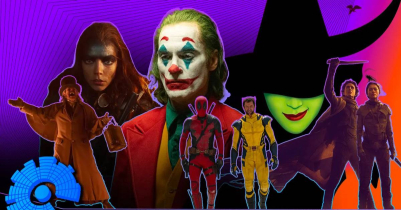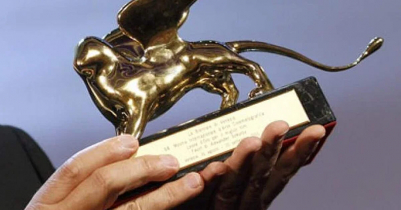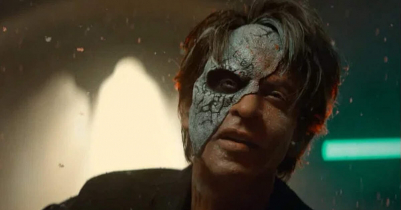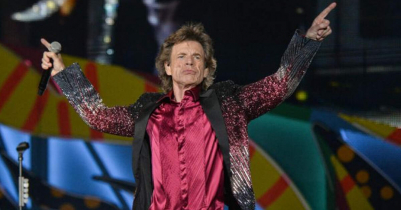Eye News Desk
Hollywood strike: Why some productions are continuing anyway
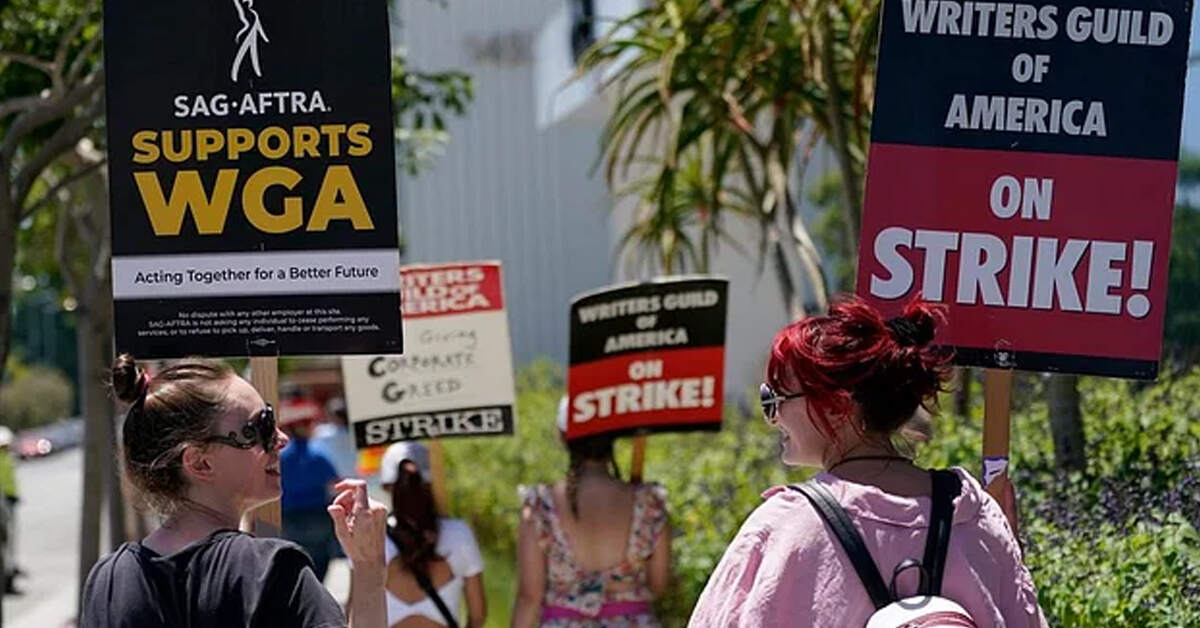
The strike by Hollywood's actors and screenwriters may have halted production by the major studios, but filming is still going on elsewhere. Industry magazine The Hollywood Reporter has listed some 200 productions on which work is continuing, including ‘Flight Risk’, directed by Mel Gibson and starring Mark Wahlberg, and the crowdfunded series ‘The Chosen.
The reason these productions can continue despite the strike is because they are independent productions not financed by the major Hollywood studios. The striking unions carefully study the contracts to make sure none of the studios being struck is involved in any way.
If the actors' union SAG-AFTRA (Screen Actors Guild-American Federation of Television and Radio Artists) gives the OK, its members can work on the projects. Some actors are critical of these exceptions, saying they threaten to undermine solidarity within the union.
But these exceptions come with conditions: any independent project wanting approval from SAG-AFTRA to continue production during the strike must commit to fulfilling the union's terms. That's meant to increase pressure on the major studios, which have so far refused to accept the demands, arguing that they are excessive and unrealistic.
But if independent producers, with budgets just a tiny fraction of the multi-millions the majors have at their disposal, can fulfill the demands, "how unrealistic are they, really?" asks Duncan Crabtee-Ireland, SAG-AFTRA chief negotiator, in an interview with the US radio network NPR.
Why Hollywood is on strike
Hollywood and demands for higher pay — at first glance, that does seem unreasonable. Didn't we just hear that Margot Robbie, star and co-producer of the blockbuster hit ‘Barbie’ has already earned 50 million dollars with the project? And Robert Downey Jr Is said to have earned 40 million dollars for each of the ‘Iron Man’ films he's starred in.
But when SAG-AFTRA called a strike vote, it wasn't interested in ensuring even bigger earnings for superstars. It's concerned with improving conditions for the vast majority of the union's members, actors who get either small roles or work as extras, and who have other jobs in order to make ends meet.
The United States is also facing a rise in the cost of living. A year ago, inflation in the country was at 8.5 per cent, and it's currently at 3.5 per cent. SAG-AFTRA is demanding an inflationary adjustment, as well as a wage system that takes into account new methods of distribution and changes in audience viewing behavior.
For example, in the past, payment for actors for purely theatrical releases was sometimes linked to the (verifiable) success of the film in the form of profit participation. But in these days of streaming services, the methods of measuring success are completely non-transparent, and streaming services like Netflix keep them secret.
SAG-AFTRA president Fran Drescher, who gained fame with the 1990s TV series ‘The Nanny’, told the US broadcaster CBS that not even actors are given any idea of how many people watch something on a streaming platform.
Concerns about artifical intelligence
The actors' union is also calling for digital privacy rights to be protected wherever artificial intelligence is used. Once facial and body scans of actors have been made, new films could be created with the help of AI — without having to hire the actual human beings again.
But the studios reject this assessment. They say such scans would only ever apply to the particular film project for which they were generated. Any use beyond that would require renewed consent and would involve a new, separate contract stipulating further payment.
The studios represented in the Alliance of Motion Picture and Television Producers (AMPTP) — including industry multinationals such as Disney, Warner Bros, Paramount, Amazon and Netflix — reject the union's demands as excessive and unrealistic. The two opposing positions are entrenched.
There have been no negotiations between SAG-AFTRA and the studios since talks broke down on 12 July. And the screenwriters' union, the WGA, has been on strike since May, with initial talks so far yielding no agreement.
Industry insiders speculate that the strikes could continue for months. The Emmy television awards ceremony, originally scheduled for September, has already been postponed until January of next year.
Effects of the strikes
Shortly before the actors' strike took effect, Cillian Murphy, Emily Blunt and Matt Damon walked out of the premiere of their film, ‘Oppenheimer’, in London on 13 July in solidarity.
They had presumably been advised of the SAG-AFTRA strike rules: no filming, no promotion, no interviews about film projects and no appearances at film premieres. Otherwise, members face expulsion from the union, which would have serious consequences, such as the loss of health insurance. In addition, the studios are obliged to give priority to union members when casting roles. Anyone expelled from SAG-AFTRA would have little chance of being hired in the future.
Superstars like George Clooney and Meryl Streep have donated millions to a strike fund from which financially strapped members can apply for benefits. Many non-famous actors are currently keeping their heads above water with side jobs. But other people employed in the film industry, such as lighting technicians, make-up artists and caterers, do not benefit from the fund. Their unions — if they have one — are not striking.
But they're also not working, as numerous projects remain on hold, including the final season of the Netflix hit ‘Stranger Things’. The Venice Film Festival, which begins at the end of August, has already lost its planned opening film, the tennis drama ‘Challengers’, and the MGM studio has postponed that film's release until next year.
Although movies such as Bradley Cooper's drama ‘Maestro’, about Leonard Bernstein, and Sofia Coppola's ‘Priscilla’, about the ex-wife of Elvis Presley, are to celebrate their premieres and compete for the Golden Lion in the competition, the Venice red carpet is likely to be less star-studded than usual.
First joint strike in more than 60 years
Some 160,000 people are organised in SAG-AFTRA, which is why this figure is often mentioned in reporting on the strike. But union membership covers not just actors — other media workers such as news editors, presenters, dancers, voice actors, stunt people or puppeteers are also represented. The strike is estimated to affect some 65,000 members.
The WGA strike also affects film and television production, including the late-night talk shows of Jimmy Kimmel, Jimmy Fallon, and Stephen Colbert, which have been shut down since May. The long-term consequences have yet to be felt, but they are likely to become apparent in six to nine months — when film and television premieres fail to materialise.
To date, the approximately 11,000 members of the writers' guild have been on strike at the same time as the actors only once before — in 1960.
Read More
- Charlie the dog bags award for lead role in ‘777 Charlie’
- Star Cineplex increases daily screenings of ‘Priyotoma’
- Disha gave up everything to be with me : Salman Muqtadir
- I will never share the screen with Bubly again: Shakib Khan
- Popular singer Imran ties the knot
- Srabanti Chatterjee in new love
- Joy-Bir, two brothers are now students at same school
- Teaser released for Nusraat Faria’s item song in ‘Shurongo’
- Mahfuz, Bubly chat about ‘Prohelika’ on a sunny afternoon
- Mamata Banerjee bans `The Kerala Story` in West Bengal




